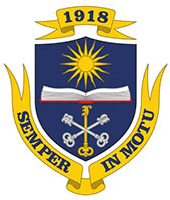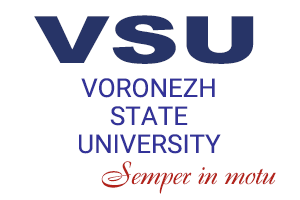On 15 November, the rector of Voronezh State University, Dmitry Endovitsky, had a meeting with the project supervisor at the Swedish Environmental Research Institute, Ronny Arnberg. Together they visited the Educational Laboratory of Ecology of VSU, where they learnt about the laboratory itself and the way it works.
“The university is very proud of this laboratory. It was created with the support of the international project Erasmus+ and is a result of the rapidly spreading trend towards the internationalisation of environmental education. The head researcher on this project is the head of the Department of Ecology and Land Resources of VSU, Tatiana Devyatova. It is here that our researchers work on improving the productivity of local industry and living standards”, said Tatiana Popova, Dean of the Faculty of Biomedical Sciences.
The laboratory’s staff also told the guests about the research projects that have been implemented, the introduction of modern environmental standards at industrial enterprises, and enhancing the ecological monitoring system in the Voronezh Region.
The meeting proceeded at the conference hall of the main building of VSU, where Ronny Arnberg gave a lecture for VSU’s students on “How Sweden deals with domestic waste”. He presented a detailed description of the most effective ways of garbage disposal.
“I started working in the sphere of recycling of solid domestic waste about 50 years ago. Back then, Sweden was recycling only 0.4% of its garbage. Today, it is 0.4% of waste that we cannot recycle, while the rest of our garbage always gets a second life. We use sewage sludge to produce biofuel for public transport, rigid plastics to make rubbish bags, and broken glass to produce a very good soundproofing material." said the speaker.
"We managed to succeed thanks to the long and hard work performed at all levels: from the local authorities and business community to each individual.
We had a clear national objective, to preserve our nature for future generations and prevent an ecological disaster. Hence, we involved the legislative authorities, employed various economic instruments, and worked on public awareness. In the early 1990s, we made manufacturers responsible for recycling the packaging, and later a tax was introduced for burying garbage at landfills. The next step was to put a ban on burying combustible and organic waste. Since 2010, we have been pursuing a new goal, to minimise the amount of food waste”.
Ronny Arnberg also talked about the reaction of public and business community to the new laws.
“We worked out a strategy for business and for the public. We went to schools and other education institutions and talked to students about the importance of recycling and not the mere dumping of waste. We gave out leaflets and broadcast educational ads on TV and radio about the importance of caring for the environment and the necessity to recycle waste. It proved to be effective: people started buying organic foods in recyclable packaging and got used to recycling things. Now, our manufacturers are racing against each other to produce the most environmentally friendly product and, hence, get more customers.”
VSU’s students asked the guest, if such a recycling system was possible in Russia and if there was a punishment in Sweden for breaking the recycling laws.












